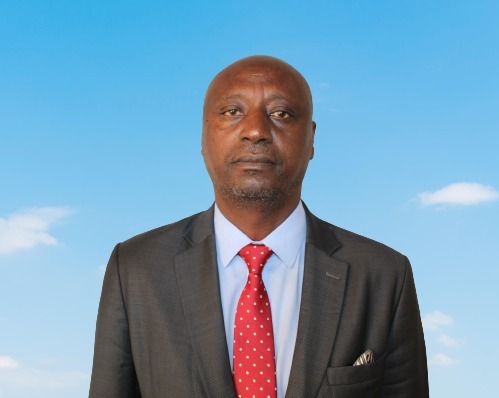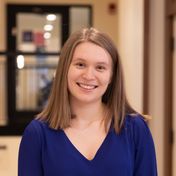Bishop Deogratias Gashagaza is the Executive Director and one of the founders of Prison Fellowship Rwanda, a non-profit organization affiliated with Prison Fellowship International that leads reconciliation programs between genocide perpetrators and survivors. Bishop Gashagaza has dedicated his life to improving the lives of Rwandans through poverty reduction and reconciliation initiatives. He is also the founder of the Association for Children Assistance, and an advisor for Rwanda’s Ministry of National Unity and Civil Engagement. Previously, Bishop Gashagaza served for eight years as Commissioner at the National Unity and Reconciliation Commission.
The fact that in Rwanda, perpetrators of violence have admitted to their crimes, survivors of violence have forgiven them, and both have come to trust and respect each other enough to live together is no small feat. What do people have to come to terms with before they can face someone who has profoundly wronged them and caused them tremendous pain?
Most victims, before facing their offenders, [have an] attitude of avoidance and mistrust; they also suffer from wounds of their painful past. Prison Fellowship Rwanda, to address these issues, has established different programs that contribute to the healing of genocide survivors and their readiness to meet with the ones who offended them. For example, community healing dialogues.
For genocide survivors, [community healing dialogues are] a space where they discuss forgiveness, healing, unity, and reconciliation. These dialogues help them discover the power and importance of forgiving someone who offended or killed their relatives, as they all live in the same communities. They realize that forgiveness can also be beneficial for them to overcome feeling[s] of bitterness, and anger; forgiveness can relieve and also heal the victims of atrocities. When these changes happen, [genocide survivors] can decide to meet and face the ones who have profoundly offended them in community healing and reconciliation dialogues. As a result, they decide [on a] new journey of mutual acceptance and [to live] together.
Genocide prisoners, before they are released and go back into their communities, also participate in healing sessions while in prison such as the Sycamore Tree Project, Ubumwe restoration, healing sessions, and other different spiritual resilience and therapeutic sociotherapy sessions. These sessions help them manage their feelings of shame, guilt, and fear, and become ready to disclose and reveal the truth about crimes they committed. [They] also become ready to meet with the victims (genocide survivors) for apology and repentance.
The 2020 Rwanda Reconciliation Barometer showed persistence of genocide ideology and divisive politics amongst 8.6 percent of citizens, a sharp reduction from the 25.8 percent reported in 2015 and the 31.5 percent reported in 2010. How have you seen this reduction play out around you, in the communities and villages?
The number [of people with the] genocide ideology has been reduced. This was notably related to many interventions. We have been involved in community awareness and in sensitizing the community [about] the social fabric. This process of societal healing has contributed a lot to reducing this genocide ideology. But, as you know, reconciliation is a process; we are still dealing with, somehow, some negative ideologies.
In terms of our efforts at Prison Fellowship Rwanda, we are working hand in hand [with other societal healing initiatives] to see how the process of reconciliation and of mutual acceptance can continue to be applied in our society and how it can be a road that contributes to reducing this number related to the genocide ideology.
The journey is still very hard because people cannot accept reconciliation at the same level. That's why we still have some numbers that are still there. But, the percentage has been reduced tremendously.
Pivoting to a current conflict, the invasion of Ukraine by Russia, do you think that when it’s all over, a similar program of promoting reconciliation between Russians and Ukrainians is conceivable?
The reconciliation village model can be applied in other areas of civil war and conflicts. Based on the best practices of Rwanda, different conflicting parties in other countries can first be sensitized to participate in community healing spaces, mediation, or conflict resolution dialogues.
Some countries in Africa have been testing Prison Fellowship initiatives, and the best practices of Rwanda in [terms of] societal healing. This practical reconciliation [model] has had many people asking us if we could contribute to the Middle East and to other countries in Africa who are in conflict. We have been visiting Central Africa and the program has been successful over there.
I'm not sure about Russia and Ukraine, but [I know that] the way of resolving the issues can be the same. But, you have to [be aware of local] culture as societal healing needs also to be considerate of [a country’s] culture and values.
As in many societies [in conflict], infrastructure and houses have been destroyed, [and] in the process of providing shelters and/or constructing houses for homeless and vulnerable groups, people from different ethnic or conflicting groups can be identified among the beneficiaries of the reconciliation villages. The reconciliation villages in post-conflict societies can help to sustain the process of peacebuilding through proximity and interaction between people from different groups.
How do you view the importance of small actors (smaller nations, non-governmental organizations, individual political figures, and local institutions) in promoting peace and amity?
I'm not talking on behalf of our government, but what I can say [is that] we see a good political will nowadays. The government of Rwanda has put in place a new Ministry of National Unity and Civic Engagement. So, considering all these efforts, we are very proud to see how our government is on top of this matter, and [that] they're contributing to our social fabric and societal healing.
[However], the government in a country cannot walk alone. So, in order to complement different efforts for the healing of the nation, we need different stakeholders; we need different interventions and contributions. That’s why I think NGOs, civil society, and different organizations have to be part of it. [They need] to help different countries in restoration, peacebuilding, societal healing, [and] reconciliation.
[This is] because wars [destroy] not only the infrastructure and the economy, but also the spirit and the reason for existence. People need to [receive] support from different actors, from different intervenors. Our aim is to restore peaceful coexistence in the community for all involved and affected by the genocide and by other crimes. [Finally, at the same time,] yes, we need to continue our mission, but we need also to be part of [the community of] African nations—their healing, their reconciliation, and therefore, their societal social fabric.
What is your vision for Prison Fellowship Rwanda in the years to come?
Our aim is to restore peaceful coexistence in the community for all involved and affected by the genocide and other crimes.
Now, it is 28 years after the 1994 genocide against the Tutsi, and most genocide prisoners are being released and reintegrated back into the community. We are envisioning to continue the psychosocial healing and restoration of the peaceful coexistence of the Rwandan Community. The main focus will be to contribute to the psychosocial rehabilitation and reintegration of former prisoners into the community. We also need to strengthen community healing, reconciliation and social cohesion programs, and again, address the intergenerational legacies of genocide among the young[er] generation[s].
Furthermore, there are many recurring conflicts around the world and especially in many African countries. There is a need to apply the Rwandan models of unity and reconciliation, including reconciliation villages, in many African countries like South Sudan, Central African Republic, Democratic Republic of Congo, and beyond. We are calling on reliable partners who are committed to contributing to practical and sustainable peace to fund this long-lasting solution to end violent conflict around the world.
In addition, peaceful coexistence and justice are nothing when people are hungry, or have no income-generating activity to sustain their life and livelihood. We need mostly partners to contribute to socio-economic activities and improve the life and livelihood conditions of the most vulnerable communities we are working with, including those living in the eight reconciliation villages to help them work together and help one another to sustain their life.
Lastly, Prison Fellowship Rwanda, built eight reconciliation villages in Rwanda, but those houses built in 2003 need to be renovated. All of this requires resources that the organization does not have now. We are calling whoever feels [that they] can help to come and join our efforts together.
Jackson spoke with Gashagaza on August 1, 2022. This interview has been lightly edited for length and clarity.





